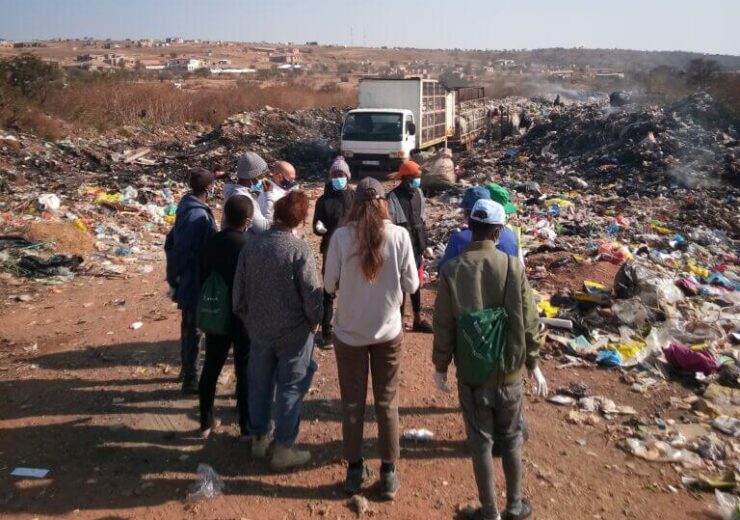Together with local partner DARDLEA, WasteAid will be supporting to increase the collection and processing of the segregated waste on the ground

Through the funding, WasteAid is pioneering a feasibility study on developing a circular economy alongside expert partners. (Credit: WasteAid)
WasteAid is one of six organisations that have been awarded funding through The International Circular Plastic Flagship Projects Competition, facilitated by the Waste Resources Action Programme (WRAP) and UK Research and Innovation (UKRI).
Through the funding, WasteAid is pioneering a feasibility study on developing a circular economy alongside expert partners, The University of Portsmouth and The Department of Agriculture Rural Development Land and Environmental Affairs (DARDLEA), in Mpumalanga, South Africa. This project will be focusing on three challenges centred around plastic pollution: reducing the littering of flexible packets, understanding where there is a lack of knowledge and operational resources in collections through to processing; and stimulating end-markets in Mpumalanga for these recyclable materials.
In places like Mpumalanga with minimal waste collection, littering is a huge problem that not only impacts the environment, but also public health. With little to no options for disposing of these materials, they often end up entering waterways and eventually harming marine life. Open burning is still a predominant option chosen to avoid the problems of litter, but not only are the emissions harmful to climate change, the pollutants also pose a risk to lung health for local communities.
Alongside the University of Portsmouth, WasteAid will be testing participatory approaches to drive improved source segregation of waste at a household level. This will raise awareness of the issues caused by the litter of flexible plastics and encourage people to separate their waste for recycling.
During a field visit to Mpumalanga, possible points of intervention to improve recycling rates were identified, and representatives from WasteAid and the University of Portsmouth had the opportunity to identify creatives and work with them to co-design behaviour change campaigns.
Together with local partner DARDLEA, WasteAid will be supporting to increase the collection and processing of the segregated waste on the ground. By stimulating these areas in the waste value chain, WasteAid and DARDLEA will then work with local processors to develop their capacity, which in turn will allow for recovered materials to stay in the local economy – promoting circularity and closing the loop.
Michelle Wilson, Circular Economy Network Director for WasteAid said: “We are honoured to be one of the projects selected to be part of the Plastics Challenge Competition and look forward to working with the University of Portsmouth and the local Municipality in South Africa to test methods that will improve the recovery rates of recycled plastic as well as closing the loop on materials locally”
WasteAid is committed to supporting the setup of systems that reduce the impacts of waste, improve local knowledge and build capacity for collection through to end markets. Incorporating circularity in waste management allows us to drive people-orientated solutions to improve livelihoods and progress on the United Nations Sustainable Development Goals in low-income communities.
Source: Company Press Release
